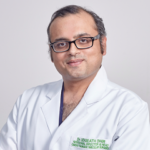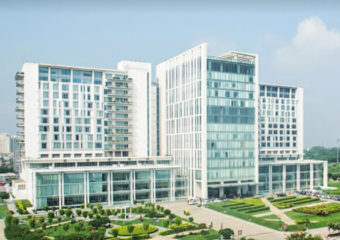Best Double Valve Replacement Cost in India
The average cost of Double Valve Replacement Surgery in India ranges from USD 9500 to USD 12,000. The cost is dependent on the kind of valve used i.e., Mechanical or a Tissue valve.
Heart Double Valve replacements of both the mitral and the aortic valve Replacement Surgery.
Remain in the hospital accounts for approximately 8 days and about 14 days outside the hospital.
Tests Necessary for discovering Valve Replacement are EKG (electrocardiogram), Chest X-Ray, Coronary Angiography, Anxiety Evaluation, and Cardiac MRI.

A double valve replacement is a replacement of both the mitral and the aortic valve, or the entire left side of the heart. This type of surgery is not as common as the others and the mortality rate is slightly higher.
Heart valve replacement is an open heart surgery. In double valve replacement there is a replacement of both the mitral and the aortic valve, or the entire left side of the heart.
Objectives:
Double valve replacement has been advocated for patients with combined aortic and mitral valve disease. This study investigated the alternative that, when feasible, mitral valve repair with aortic valve replacement is superior.
Double Valve Replacement Causes
The reasons for the generation of defects in heart that may lead to double valve replacement can arise due to different factors. In most of the cases, this situation arises after a long period of improper treatment of the symptoms that was present some time ago. The causes that can be remedied after this surgery can be explained as:
- Congenital heart defects: The fault in your heart valve may be due to the improper formation of the valves at the time of birth. Usually, the conditions are nowadays quickly detected and treatment undertaken thereof.
- High blood pressure : High blood pressure may cause the valve to experience undue strain, which may reduce their effective activity. Pulmonary hypertension may also be caused double high blood pressure.
- Diabetes: This is one of the primary concerns of heart disease. According to available statistics, individuals suffering from diabetes have a higher rate of contracting heart disease than other causes. It is also stated that adult patients with hyperglycemia have two to four times more fatality probability than from any other diseases. Therefore, diabetes may be also a contributing factor for the double valve replacement surgery.
- Smoking: Smoking is a contributing factor in the generation of cardiac disease. Excess smoking reduces the pulmonary capacity, which causes severe strain on the heart and may also lead to various diseases of the valve. According to available statistics, smokers have a 70 percent more death rate from coronary artery disease than do nonsmokers. Therefore, uncontrolled smoking may also be problematic for the cardiac valves.
Excessive use of alcohol or caffeine: Caffeine increases the heart rate and excess consumption of caffeine can also harm the heart tissues. This is also a significant cause for heart diseases. - Drug abuse : Indiscriminate and uncontrolled abuse of drugs can lead to cardiac diseases.
- Stress: Stress and tension can cause palpitations in the heart, and also harm the valvular structure.
Valvular heart disease: The diseases in the valves can cause the different problems in it, which may be only corrected by the surgery, rather than a course of medicine or physiotherapy.
Symptoms
The indications of the conditions that require this surgery may be similar to other cardiac diseases involving cardiac valves. However, the intensity will vary depending on the age of the patient. The key indications which can convince the physician to suggest a double valve replacement can be listed as:
- Exhaustion
- Dizziness
- Shortness of breath.
- Poor oxygenation.
- Discoloration of skin
- Breathing difficulties
- Pain in the chest
- Withholding of fluids, specifically in the lower limbs.
- Stroke
- Heart murmur
Diagnosis
Issues in the valve may not be detectable in the premature ages of the patients. Depending upon the symptoms, the attending doctor of medicine may ask for one or more of the following test:
- Echocardiogram: This exam can assist doctors in diagnosing the state of the atrial and ventricular area, and the cause and seriousness of your complaint.
- Chest X-ray: An X-ray image helps your doctor to examine the state of your heart and lungs. An X-ray may make out situations other than a cardiac defect that may explain your symptoms of illnesses.
- Magnetic resonance imaging (MRI): This technique uses electromagnetic waves to draw a 3D image of your heart. The doctor may ask for this test if the state of the valves cannot be assuredly recognized.
Other tests like Electrocardiogram and Cardiac catheterization may be suggested by the physician according to the cardiac circumstances of the patient.
TREATMENT
Management of conditions that give rise to double heart replacement surgery with medicines will not be effective in the long run, as they will only dampen the indicators for a while. According to the age and the development of the disease symptoms, the physicians may recommend the following tips for before, during and after the surgery;
Before the procedure
The hospital staff will evaluate your case history, any alcohol or medicine abuse, previous medical histories, any hypersensitivity towards specific medicine etc. Then they will check for any irregularity in your pulse or blood pressure. Your doctor may suggest fasting before the procedure.
Before the operation, you will be given numbing medicines at the site of the incision or will be made fully cataleptic according to the type of surgery determined by the physician. Any personal items like jewelry, piercings, dentures, contact lenses will have to be removed during the procedure.
During the procedure
1. You will be placed in the operating table with the chest facing upwards.
2. The part where the slit will be done will be made lacking hair.
3. You will be given local anesthesia or will be made totally unconscious.
4. You will be attached with a heart-lung bypass machine which will keep the flow of blood in one piece during the process into your heart.
The time taken will depend on the modus operandi adopted, which may be one of the following:
Minimally invasive surgery: This is where the doctors make small incision in the patient’s body. One of the most routine techniques is the cardiac catheterization. In this method, doctors introduce a thin catheter into a blood vessel leading it to the heart. Through the catheter, doctors fix a plug or a new valve to replace the faulty one in the heart of the patient. For valves of non-biological origin, the patient may have to take blood-thinners for the rest of his life. If valve made from biological sources are used, then this kind of medicine need not be taken. However, the final decision will be taken by the surgeon-in-charge.
Open-heart surgery: Patients with serious cases of valvular problems can be treated with open-heart surgery. Under heavy sedatives and external oxygen support, the thoracic area of the patient is opened to expose the heart and the diseased valve is replaced by the surgeon with a new artificial valve. Sometimes, minimally invasive surgery may be adequate for surgical treatment.
The surgery may take upto six hours, depending upon the state and medical history of the patient.
Recovery
The patient will have to stay in the hospital for approximately five to seven days. Full recovery can take a few weeks or up to several months, depending on the rate of healing and the type of surgery that was performed.
Double Valve Replacement Surgery risks?
- Bleeding during or after the surgery
- Blood clots that can cause heart attack, stroke, or lung problems
- Infection
- Pneumonia
- Pancreatitis
- Breathing problems
- Arrhythmias (abnormal heart rhythms)
- The repaired or replaced valve doesn’t work correctly
- Death
There may be other risks depending on your specific medical condition. Be sure to discuss any concerns with your healthcare provider before the procedure.






